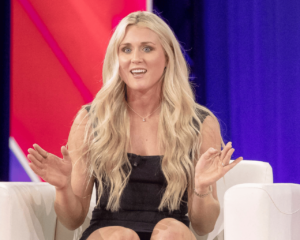Nike’s Dilemma: The Impact of Athlete Activism on Brand PartnershipsNike is reportedly considering ending its contract with Brittney Griner amid a significant public backlash, encapsulated by the statement: “We need more athletes like Riley Gaines and less like WOKE Brittney Griner!!!” This situation highlights a broader issue faced by companies in the realm of athlete endorsements and brand partnerships, particularly in an era where social and political activism by athletes has become increasingly prominent.

The Significance of Brand-Athlete PartnershipsBrand partnerships with athletes are more than just endorsements; they are strategic alliances that can significantly influence brand image and market reach. Companies like Nike invest heavily in athletes who embody the qualities they wish to associate with their brand. Historically, athletes have been chosen for their performance, charisma, and ability to connect with fans. The partnership is mutually beneficial, providing athletes with financial support and exposure while offering brands an association with success and excellence.
However, in today’s climate, athletes’ social and political views can profoundly affect these partnerships. As athletes like Brittney Griner use their platforms to address issues such as racial injustice, LGBTQ+ rights, and other social causes, they can both enhance and challenge the brands they represent. For Nike, a company known for its bold marketing strategies and support of social justice movements, navigating these complex dynamics can be particularly challenging.
The Case of Brittney GrinerBrittney Griner, a prominent WNBA player, has been vocal about social justice issues and has engaged in activism, including kneeling during the national anthem—a gesture that has sparked both support and controversy. Her activism reflects a broader trend among athletes who use their platforms to advocate for change. For many, Griner’s stance is seen as a courageous effort to address critical issues and promote equality.
However, this activism has also drawn criticism from those who believe that such actions are divisive or inappropriate, particularly when they involve national symbols like the flag and anthem. The backlash against Griner is part of a larger debate about the role of athletes in social and political discourse.